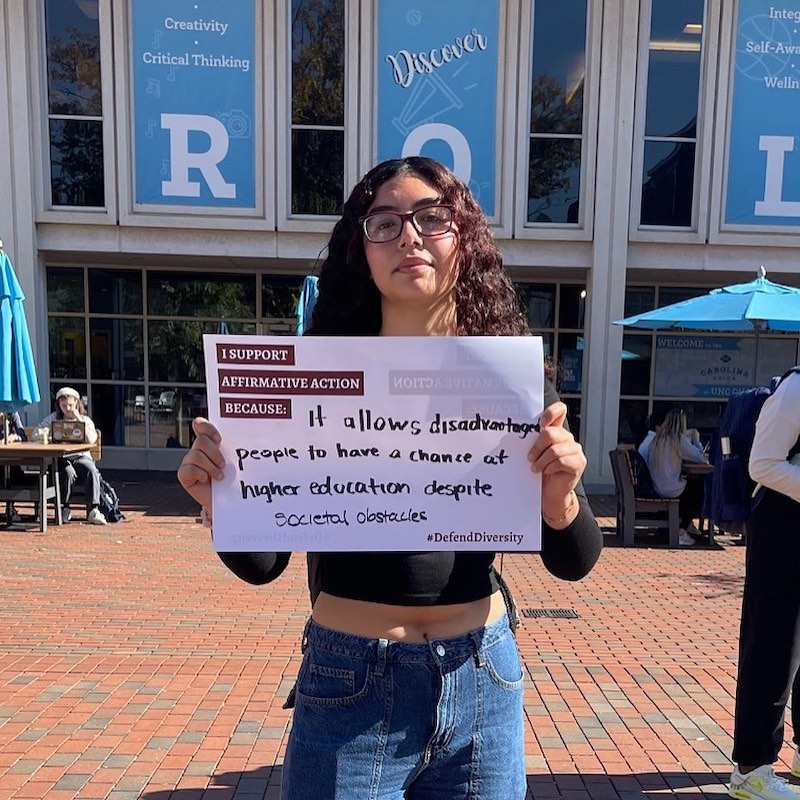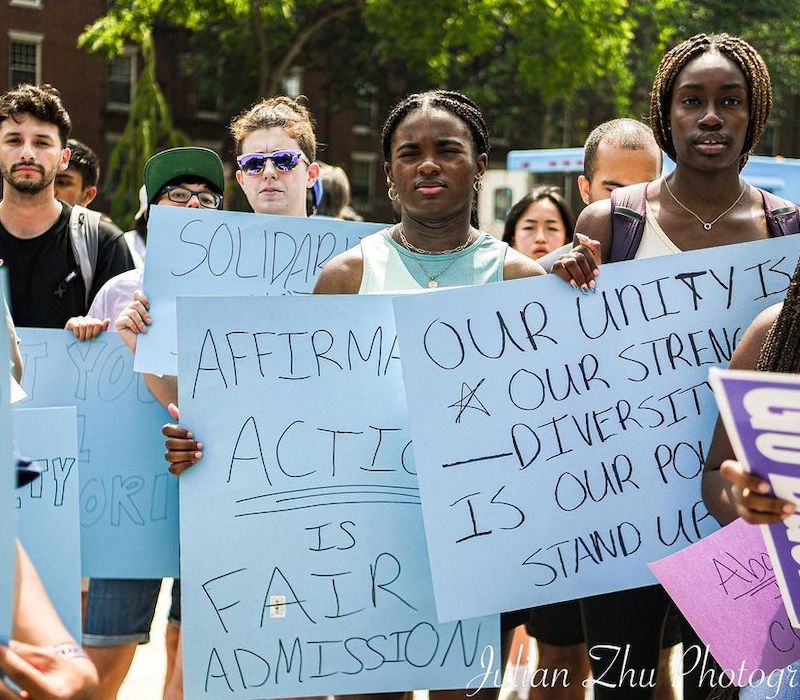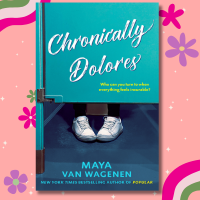TRENDING
In the News
Everything you need to know about the Supreme Court's ruling on affirmative action

Please select your race.
This question is asked on forms, standardized tests and even college applications. For some, choosing how to identify is as easy as checking a box or bubbling in a circle with a pencil. For others, making this decision could now make or break their futures.
Last week, on June 29, the Supreme Court ruled that affirmative action programs at Harvard University and the University of North Carolina are unlawful, meaning universities can't consider race as part of their admissions process. Their reasoning? It breaks a part of the Fourteenth Amendment called the Equal Protection Clause.
While this may be a victory to some, others are left to worry about their access to equal education and their academic futures.
If you are planning on going to college—or are currently in the college application process—you are definitely going to want to be familiar with this ruling. Here's what you need to know.
What exactly is affirmative action?
The American Civil Liberties Union describes affirmative action as policies aiming to address discrimination (based on things like race, gender, ethnicity, etc.) in schools and the workplace. Also known as "race-conscious admissions," these policies are meant to create a more diverse student body and recognize barriers that prevent historically underrepresented students from accessing higher education.
What will this ruling mean?
Now, college applications will be "race-neutral," meaning race won't be a sole factor taken into consideration.
Guadalupe Torres, a first-generation student at Boston University and Latina, believes this ruling will not only make it harder for students of color to receive higher education, but it will also trickle into other places like the workforce. "This is going to affect representation in jobs because less students of color are going to be getting an education," she says.
College applications are meant to showcase who you are, and for some, this includes mentioning their race. Lilian Ang, a rising sophomore at Cornell University, says she remembers writing her college essay about the importance of her identity as a Hispanic and Asian woman. "How are [colleges] just going to ignore race, when so many people's entrance essays are about their racial and cultural experiences?" she asks.
Right now, both Harvard and UNC have issued statements backing their dedication to diversity on social media. Eight Ivy League Black Student Associations have also issued a joint statement detailing their support for racial equality.
What can you do?
You can always show your support by spreading awareness via social media—and even just having tough conversations about important issues like this with the people around you. You can also do your own research to stay informed and help others learn, too. No matter what, your voice is always valuable. Never be afraid take action and stand up for the things you believe in.
Slider image: @defend_diversity
All GIFs via GIPHY
POSTED IN TRENDING, In the News

 become a contributor
become a contributor




















